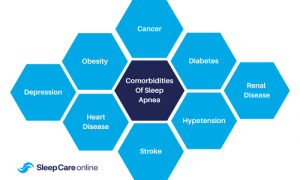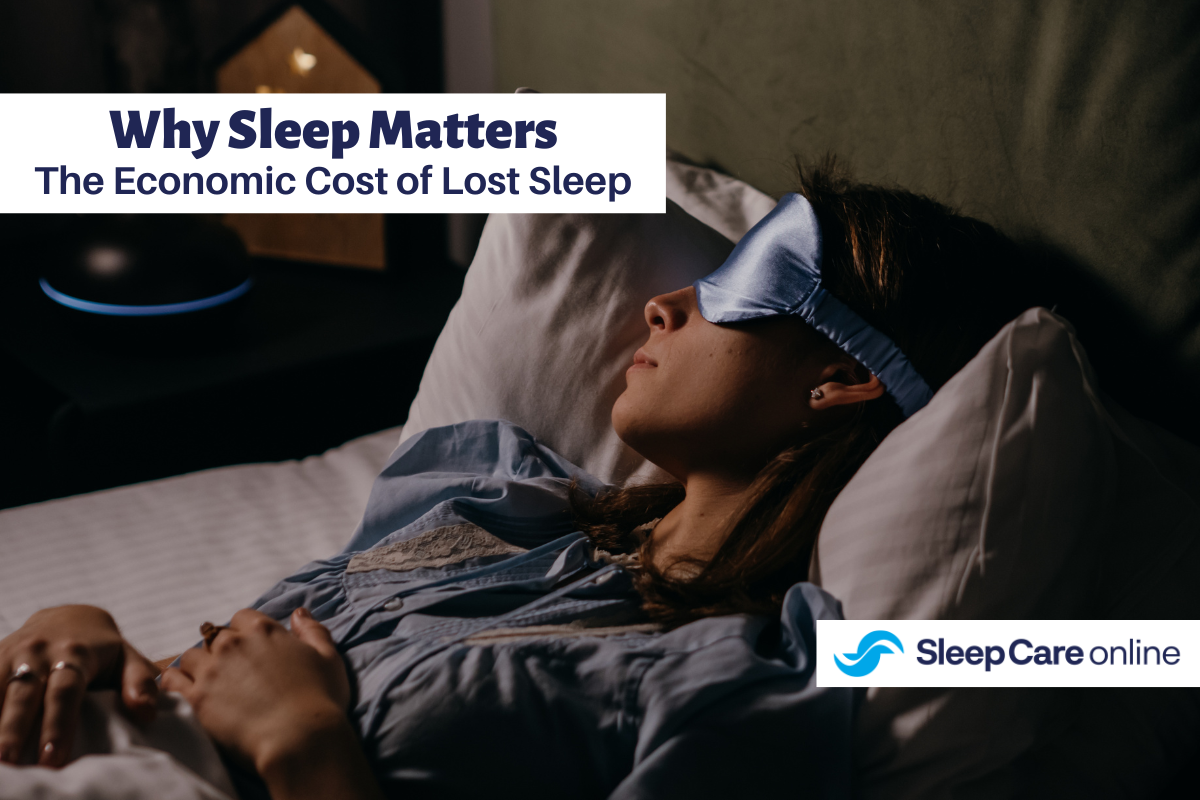Sleep apnea can do more damage than leave you drowsy during the day. Many health issues related to sleep deprivation from sleep apnea can impact your health. These are known as sleep apnea comorbidities and may be impacting your health more than you think.
Common Comorbidities Of Sleep Apnea
There is extensive evidence of the link between diabetes and sleep apnea. Studies show that obstructive sleep apnea affects insulin levels and glucose metabolism. Sleep apnea is 71% more common in patients with Type 2 diabetes.1
Additionally, common symptoms of sleep apnea, like daytime sleepiness, can actually impact your body’s glucose metabolism and insulin sensitivity. These two actions could increase the chance of developing diabetes and also increase the progression of diabetes.
The erratic oxygen level drops experienced during sleep apnea episodes over time can elevate blood pressure levels, increasing the risk for hypertension. Changes in sleep health may actually lower blood pressure.
Many cancer patients also suffer from sleep apnea. Almost 30% of cancer patients experience daytime fatigue due to sleep loss from sleep apnea.2 Maintaining healthy sleep is essential for cancer treatment and treating sleep apnea along with cancer can aid on-going oncology regiments.
Obesity is one of the most common comorbidities of sleep apnea. Excessive body weight can lead to an increase in fatty tissue around the throat, which can make sleep apnea symptoms worse. Often weight loss is one of the recommended lifestyle changes to reduce sleep apnea.
Sleep apnea can also impact the health of the heart. Dramatic fluctuations in blood oxygen levels due to sleep apnea can over time affect blood flow and the function of the healthy functioning of the heart. Specifically, sleep apnea may cause left ventricle diastolic dysfunction, which can cause heart failure.
Sleep disorders like sleep apnea are linked to stroke occurrences. Sleep apnea is the suspected trigger for 50-70% of strokes that occur at night. 3 Those who have suffered a stroke may also experience slowed recovery if they also have sleep apnea.
While there is no direct link between kidney disease and sleep apnea, related comorbidities such as high blood pressure and low blood oxygen levels can contribute to renal disease. Like so many other comorbidities related to sleep apnea, the loss of sleep and unhealthy blood oxygen levels long-term can have a dramatic impact on health overall.
There is an increased presence of sleep apnea in patients with depression. In recent studies, more than 50% of sleep apnea patients also exhibited signs of depression.4 Sleep apnea clearly affects both physical and mental health.
Other Comorbidities Of Obstructive Sleep Apnea
Comorbidities of obstructive sleep apnea also include diseases affecting the respiratory system like COPD and asthma, other mental health issues such as anxiety and other heart-related health problems including arrhythmias and irregular heartbeats.
Conclusion
While sleep is not the only cure for many of our health problems, it clearly can help prevent them. Maintaining a good night’s sleep is just as important as diet and exercise. If you think you have a sleep disorder like sleep apnea which is impacting your healthy sleep, speak to your doctor about diagnosis and treatment.
References
- Padmidi S, Tasali E. Obstructive Sleep Apnea and Type 2 Diabetes: Is There a Link? Front Neurol. 2012;3:126.
- City of Hope. Is there a link between sleep apnea and cancer? March 2, 2023
- Sleep Centers of Middle Tennessee. The Connection Between Sleep Apnea and Stroke Risk: What You Need to Know. June 6. 2022
- Migala, Jessica. The Link Between Sleep Apnea and Depression, Anxiety, and Mood. Everyday Health. July 10, 2023





